Tajikistan selected to be part of ITC global textiles and clothing program
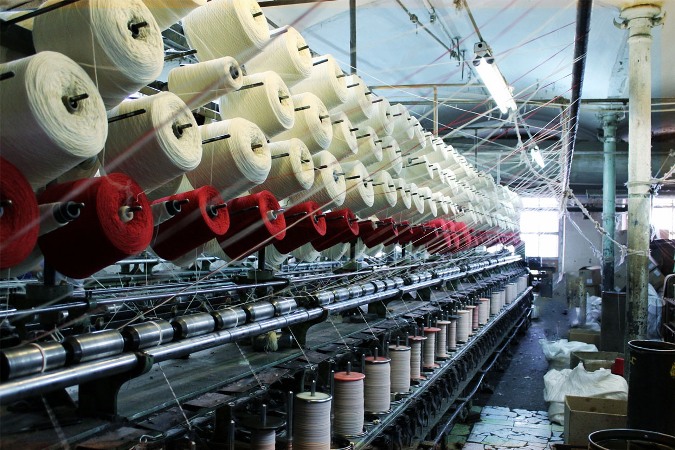
DUSHANBE, 09.04.2018. /NIAT “Khovar”/. Tajikistan is one of the five countries, including Kyrgyzstan, Egypt, Morocco, and Tunisia, selected to be part of the new Global Textiles and Clothing program (GTEX), financed by the Government of Switzerland and implemented by International Trade Centre (ITC).
A statement by the ITC Tajikistan indicated that introducing the GTEX program, discussing the key components and activities, implementation mechanism and approach with the local counterparts from the public and private sectors, as well as the development partners will be the main objective of the mission of Mr. Armen Zargaryan, ITC’s Program Coordinator for the Office for Eastern Europe and Central Asia to Tajikistan to be held on April 9-14, 2018.
The new four-year program (2018-2021), aims to boost textile and clothing exports from Tajikistan to stimulate employment and income generation along the textile and clothing value chain. The program is intended to help the selected countries to build competitive, sustainable businesses and to create long-term employment, especially for women and young people.
Textiles and clothing is considered as one of key and promising export sectors in the economy of Tajikistan. It is the second largest exporting industry in the country. While cotton-rich Tajikistan currently exports around 90% of its annually produced cotton fiber, the country makes strategic steps forward to create a whole chain of processing raw material into a ready product and enter the foreign markets with “Made-in-Tajikistan” clothing products.
Mr. Zavqi Zavqizoda, First Deputy Minister of Economic Development and Trade of Tajikistan, highlights the importance of the textile and clothing sector in the country’s economy: “Tajikistan is a cotton producing country and we are attempting to ensure full processing of cotton within the country to produce final products. By supporting the textile and clothing sector, our partners from the Government of Switzerland and ITC assist us in achieving one of Tajikistan’s key strategic priorities shifting from agro-industrial to industrial-agriculture based economy”.
Building upon the achievements of previous ITC interventions in the textile and clothing sector in Tajikistan, the new project will continue to support selected textile and clothing companies by connecting them to markets and value chains. These companies will benefit from job security and possible increased earnings through an increased competitiveness of their companies and the sector as a whole.
The project will also assist Tajik trade support institutions, such as selected consulting companies, business associations, and academia, to improve and sustain their operational and managerial capacities further to offer a wider range of quality services to the country’s textile and clothing sector.
The ITC focuses on the textile and clothing sector of Tajikistan since 2009. Mr. Armen Zargaryan, ITC’s Program Coordinator for the Office for Eastern Europe and Central Asia, says: “The choice of the sector is driven by the fact that it has a high potential for growth and making a significant contribution to the country’s export diversification. The sector also has significant opportunities in terms of employment generation, particularly for women.”
The International Trade Centre, supported by the Government of Switzerland, aims to increase the export competitiveness of the Tajik textile and clothing sector by supporting sector companies, and relevant trade support institutions from both public and private sectors.
This year Switzerland celebrates the 20th anniversary of the Swiss Cooperation Office in Dushanbe. Within the framework of a comprehensive cooperation and development program, Switzerland has supported the people and the government of Tajikistan in reforming the health, water and natural resource management sectors, in increasing access to justice and in facilitating the country’s transition towards a market economy. Switzerland invests approximately 20 Mio USD per year in projects implemented in all parts of Tajikistan.











 Coins Dating Back to the 1st Century AD Discovered in Tajikistan
Coins Dating Back to the 1st Century AD Discovered in Tajikistan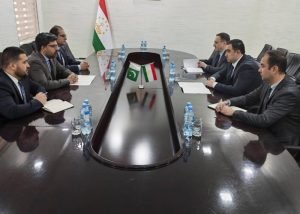 Trade Turnover Between Tajikistan and Pakistan Reaches $43 Million in 2025
Trade Turnover Between Tajikistan and Pakistan Reaches $43 Million in 2025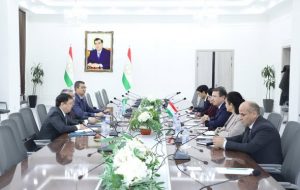 Days of Kazakh Medicine to Be Held in Tajikistan in 2026
Days of Kazakh Medicine to Be Held in Tajikistan in 2026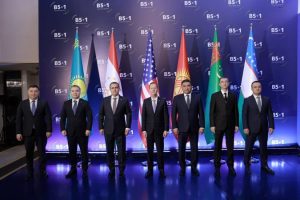 Tajikistan Highlights Investment Potential at B5+1 Forum in Bishkek
Tajikistan Highlights Investment Potential at B5+1 Forum in Bishkek Tajikistan and the United Arab Emirates plan to develop green energy
Tajikistan and the United Arab Emirates plan to develop green energy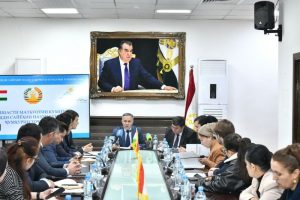 Growth in the Number of Tourism Service Providers in Tajikistan
Growth in the Number of Tourism Service Providers in Tajikistan Tajikistan, Abu Dhabi Fund Sign $100 Million Deal for Rogun Hydropower Plant
Tajikistan, Abu Dhabi Fund Sign $100 Million Deal for Rogun Hydropower Plant Norak Hydropower Plant Rehabilitation Phase One to Be Completed in December 2026
Norak Hydropower Plant Rehabilitation Phase One to Be Completed in December 2026 Tajikistan Begins Preparations for Transition to 12-Year Education System
Tajikistan Begins Preparations for Transition to 12-Year Education System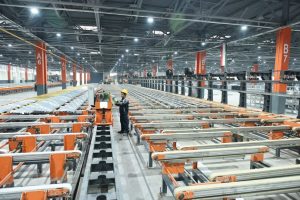 Industrial Output in Tajikistan Reaches 66.7 Billion Somoni in 2025
Industrial Output in Tajikistan Reaches 66.7 Billion Somoni in 2025














